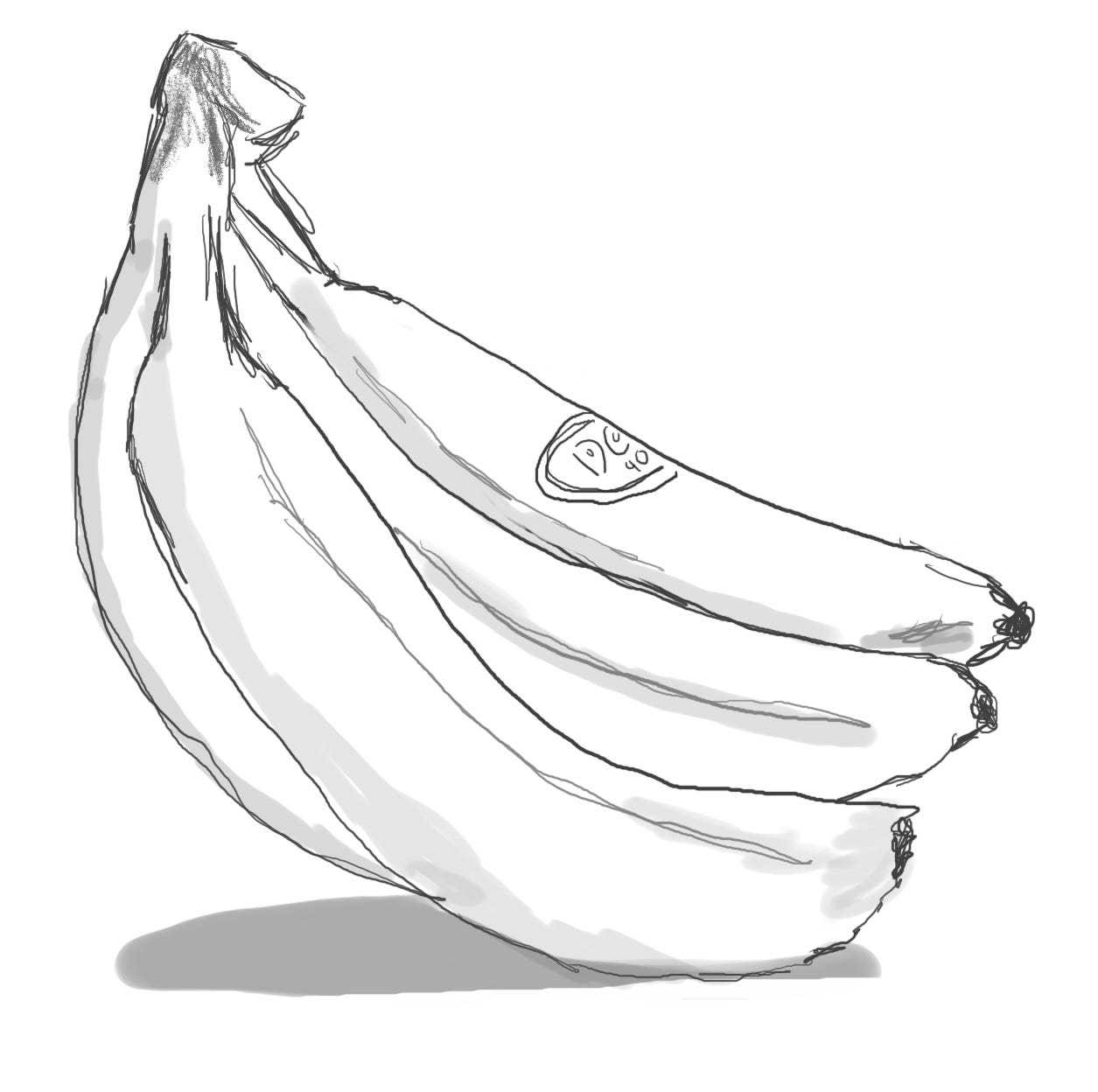Every Fruit Is A Number
(5-minute read, or listen)
I have secrets with bananas.
This is not something they prepare you for when you’re 16 and working as a cashier at the Grand Union.
But even if they had explained it, I wouldn’t have understood.
Every afternoon I come in, after school, to my first job, is like the day I’d been born: Born wearing a nametag and an oversized tan vest that keeps getting stuck in the register drawer when it closes.
The other thing they don’t tell you is that fruits and vegetables aren’t actually fruits and vegetables. They’re numbers.
Every carrot and kumquat has a sticker, or a plastic tag, or a rubber band - with a number on it. The cashier punches the number into the keypad, the scale beeps, and someone pays $1.79 for a pound of something. It’s a perfect system that can never fail unless the sticker falls off, or was never put on, which happens about 50% of the time.
Grand Union’s theory is that I’ll eventually see so many Granny Smith apples that I’ll remember that Granny Smith apples are 4017.
I can remember things. I remember when my shift ends. I remember when a local news anchor comes through my line and his change is $6.66. I remember exactly how he adjusts his glasses and says in his deep news voice “oh dear.”
I remember when Julie Smith comes through my line: She’s a senior. She knows things. I glance down to scan her bottle of soda, and when I glance back up she’s gracefully pulling a 5-dollar bill from inside her bra. It doesn’t seem possible that this is really happening, but I remember it a lot.
Whether broccoli rabe is 4547 or 4971 or 5642, not so much.
Which causes problems.
I’m dismantling a tower of cat food cans when I spot it, skulking behind some tinfoil. It looks like some kind of cabbage. But a cabbage that, through no fault of its own, would have a really hard time getting a date.
If vegetables could talk I would introduce myself. And it would glance up at me, half-smiling, and say “we’ve met before, actually.” It would be worth the embarrassment because then this mysterious produce would have to re-introduce itself.
The woman in my line who’s trying to buy this thing can talk:
“79-cents a pound,” she snaps when she sees my confusion.
Which doesn’t help. I need the code.
“Do you remember what it is?” I ask. If she tells me what it is I can look up the code on the laminated index card tucked behind my keypad.
“79-cents a pound,” she replies.
Maybe it’s a Belgian endive? It kind of looks like Jean-Claude Van Damme. A little.
The only way to be sure is to turn around and ask Linda.
Grand Union’s cashier force is made up of high school sophomores and women in their mid-to-late 40s with big perms and long stares. Linda knows everything about the store except your name, but if you can get her attention she will tell you what vegetable you’re holding. I turn around but her register’s closed and she’s gone.
The line at my register is five carts long now, and my customer is looking right at me.
It’s weird to think of her as my customer. At 16, the only thing that really feels like it’s yours is your interior life, the little dreams you’ve been testing in your head, the inside jokes you have with only yourself. Everything else is actually someone else’s problem, and you’re just standing awkwardly in the way.
I’ve read that most people grow out of this eventually.
But right now I have to do something, so I punch in the only number I can remember. 4011. Bananas. 49-cents a pound. No one ever notices. Grand Union will go bankrupt in a few years, but that’s probably unrelated. The only thing that matters is now, and now my scanner is still beeping, my register belt is still moving and I am still 16.


I read somewhere once that the numbers also have to do with whether the produce is organic or not, has g.m.o.s, etc. It's one of those mysteries where I'm not sure I want the answer. Life is complicated enough.
You bring my right back to my first job self!